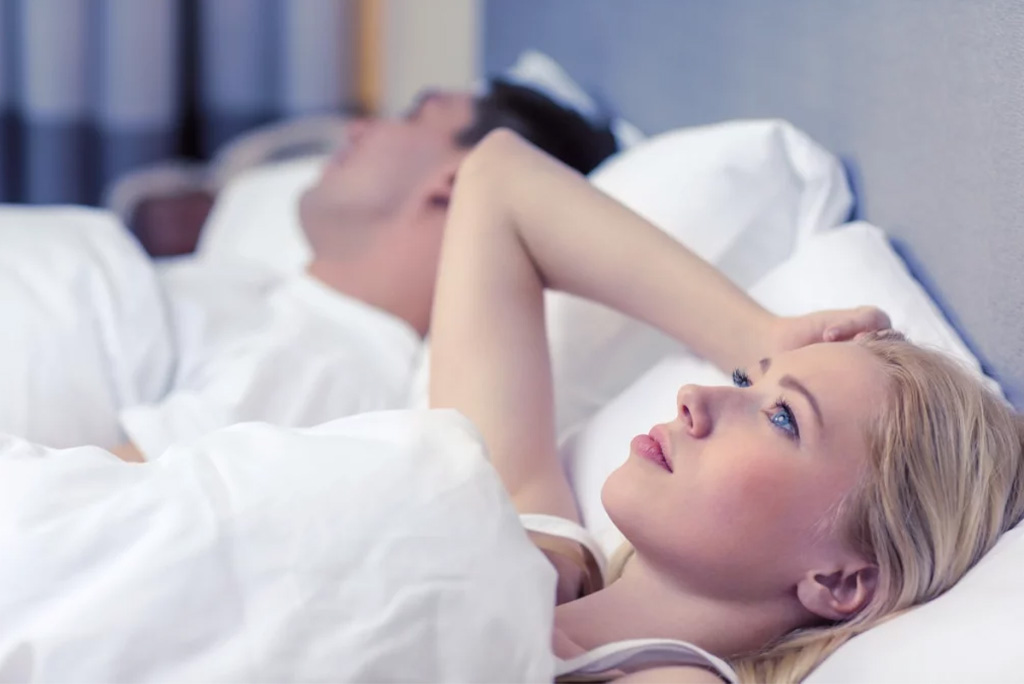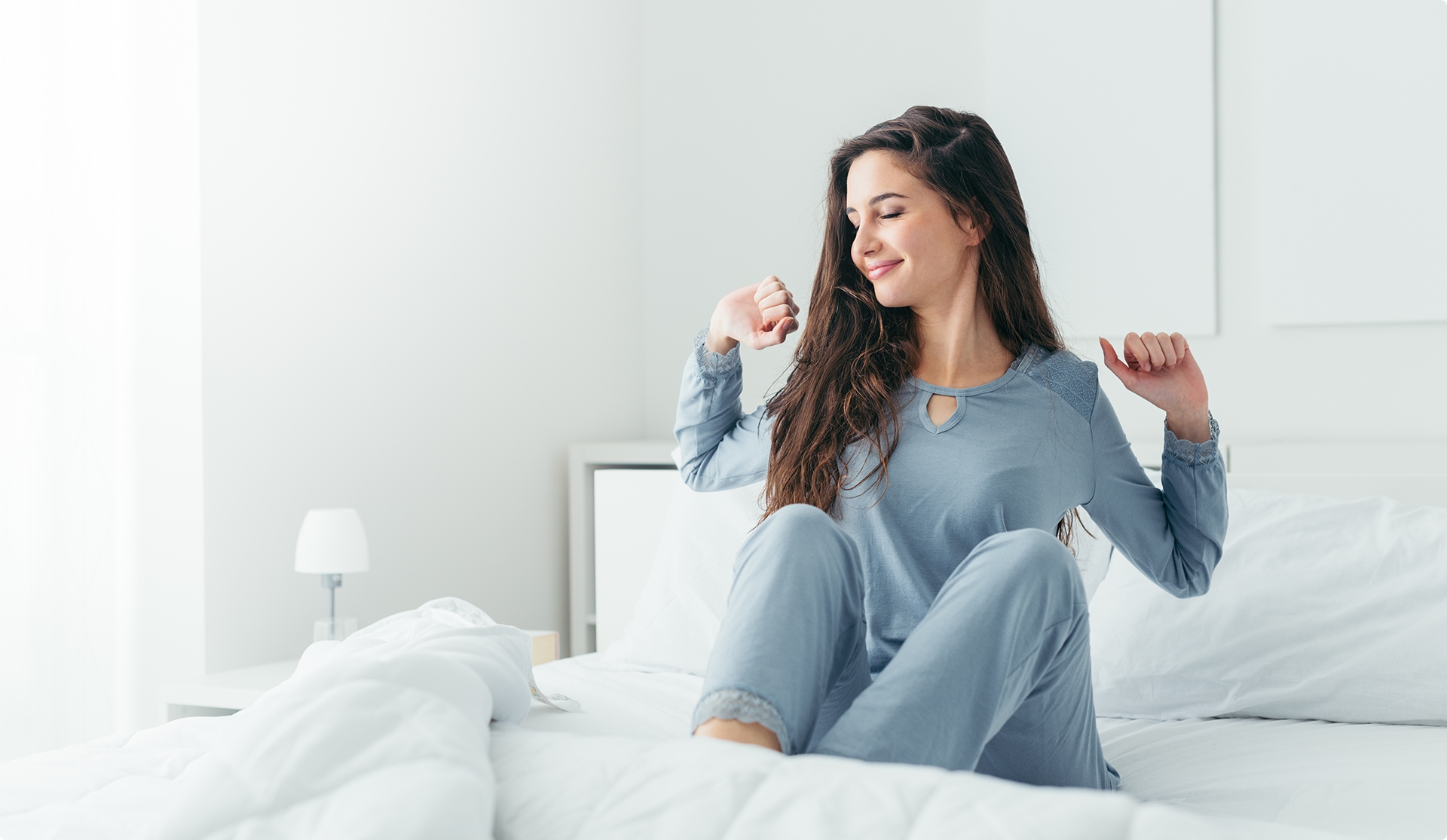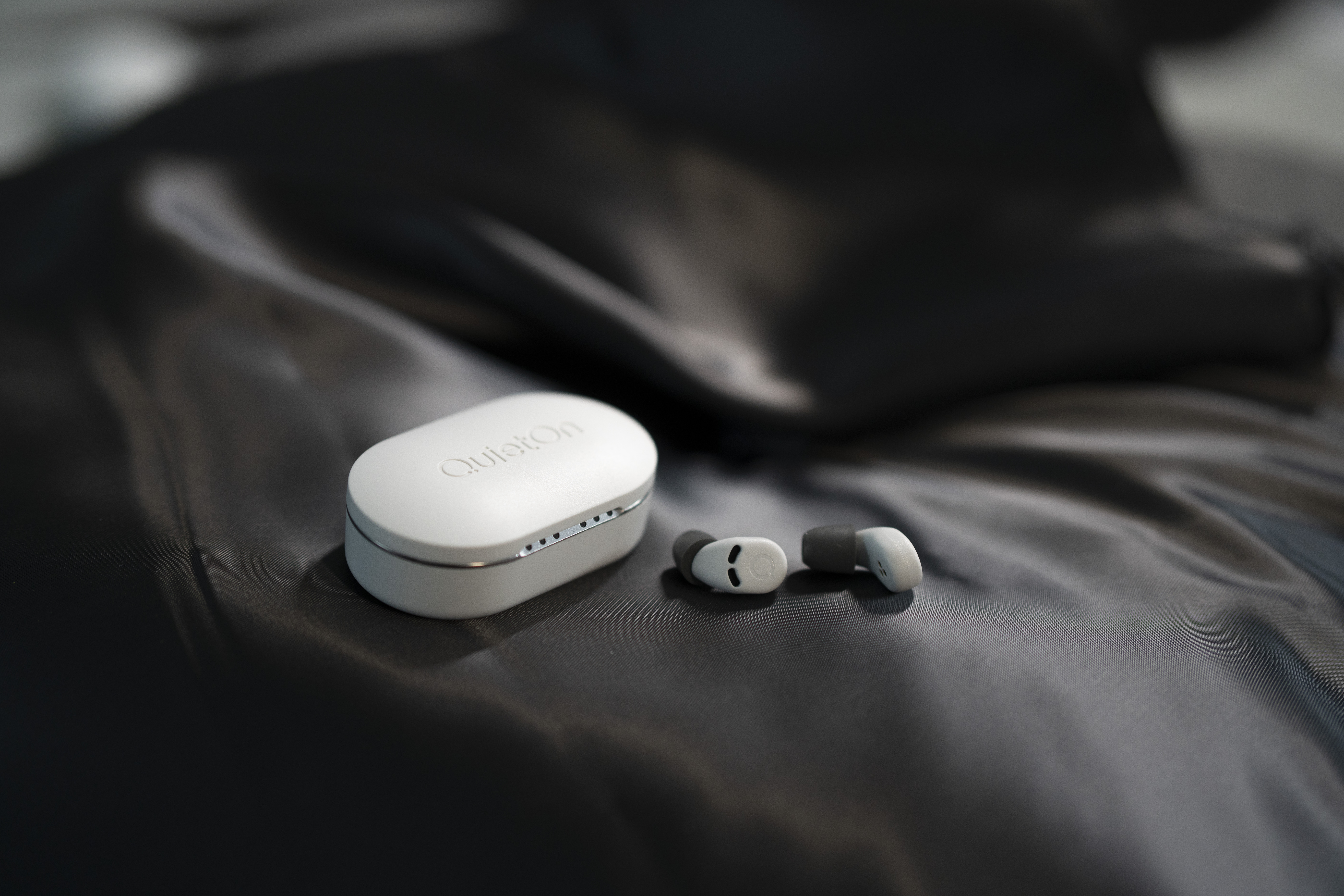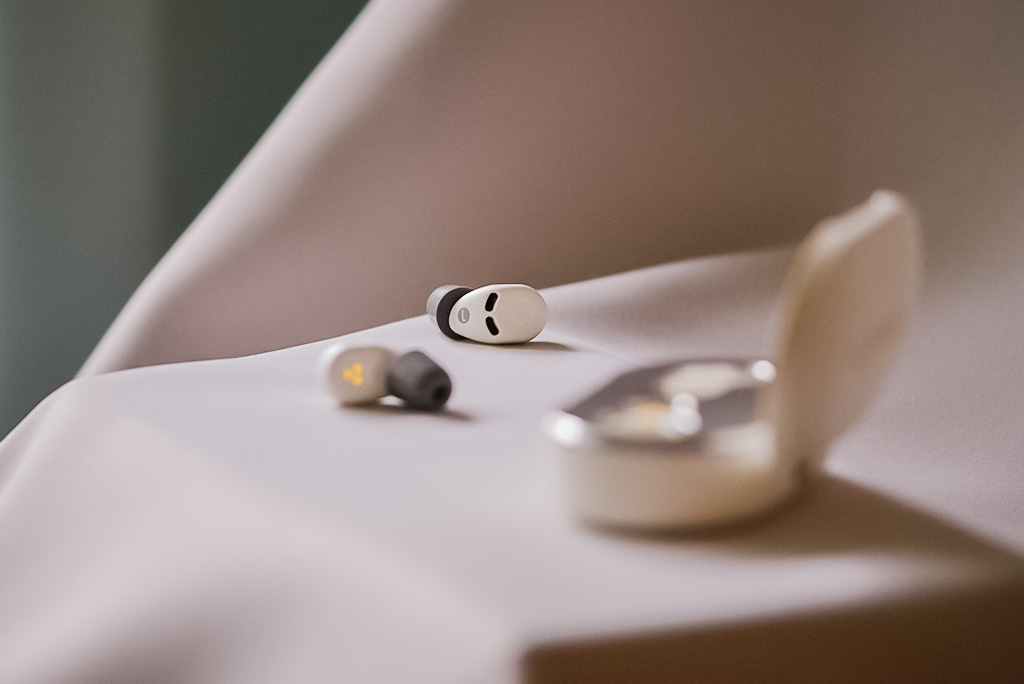Your cart is currently empty!
Melatonin and Sleep Quality
Melatonin is a substance that many of us are rather familiar with. It is often sought as a quick remedy for sleep deprivation and symptoms of insomnia. However, understanding how this common substance affects our sleep quality and ensuring correct usage is essential.

What is melatonin?
Melatonin exists and produces naturally in our bodies, which the brain naturally releases in response to darkness. It plays a vital role in regulating the sleep-wake cycle, making additional light exposure during bedtime detrimental to this natural process.
As the melatonin production kickstarts in your brain in response to the absence of light, naturally introducing additional light to your bed time routine harms this natural process. While all kinds of light cause issues in melatonin production, the new harmful addition to our daily lives is our devices. Our phones, laptops and televisions emit blue light, which has been found to decrease the feelings of tiredness in 50% of studies.
Supplemental melatonin
While melatonin supplements are widely available, one might wonder why they are necessary since melatonin is naturally produced in the body. However, as melatonin’s main purpose is to help regulate the sleep wake schedule, the substance may be useful for treating temporary sleep problems like jet lag, short term insomnia, delayed sleep phase syndrome, and catering to the needs of shift workers.
Melatonin can be a helpful aid for sleep regulation when used appropriately and under the guidance of a healthcare professional. There are short-term negative effects of supplemental melatonin include drowsiness, fatigue, and decreased mental alertness when taken during the day or in excessive doses. Long-term use or high doses may disrupt the body’s natural hormone production, leading to hormonal imbalances. Melatonin can also interact with certain medications, necessitating consultation with a healthcare professional before use.
Natural alternatives to melatonin supplements
As melatonin production occurs naturally in your brain, incorporating good sleep hygiene practices can possibly reduce or remove the need for supplemental melatonin. To improve your sleep routine and potentially reduce the need for melatonin supplementation, consider incorporating the following practices:
- Keep a consistent sleep schedule and reduce naps.
- Try setting up a relaxing bedtime routine, personalized to your specific needs.
- Create a sleep-friendly environment by ensuring your bedroom is conducive to rest, maintaining a cool, dark, and quiet atmosphere.
- Limit exposure to sleep-hindering elements such as screens, caffeine, and alcohol, as they can disrupt sleep patterns and contribute to poor sleep quality.
- Managing stress can improve sleep quality and reduce the need for sleep aids like melatonin.
Melatonin serves as a valuable tool for addressing short-term sleep disturbances that may not respond to conventional methods like enhancing sleep hygiene. These disruptions often stem from factors like jet lag from travel or irregular shift work. However, it’s essential to recognize that while melatonin offers immediate relief, it’s not a sustainable long-term solution.
For example, sleeping in silence is a great way to enhance your sleep hygiene. Adding products such as earplugs to diminish bothersome noises while sleeping a great first step toward achieving better quality sleep,
The use of melatonin supplements has surged in recent years, particularly in the United States where adult usage has multiplied nearly fivefold since the 2000s. This rise may be attributed to the increased availability of melatonin products, offering a quick fix for minor sleep problems.
However, for lasting improvements in sleep quality, it’s crucial to assess and optimize your sleep environment. Before relying on melatonin as a long-term solution to improve sleep quality, it’s advisable to identify the root causes of your sleep issues, consult a healthcare professional, and explore natural remedies.
In summary, while melatonin supplements provide easy access and quick relief for sleep problems, understanding their impact on sleep quality and ensuring proper usage is vital. Consulting healthcare professionals and exploring natural methods are key for sustainable, long-term solutions to sleep concerns.
Works Cited
Alizadeh Feremi, Khadijeh, et al. “Effect of Melatonin on the Sleep Quality: A Systematic Review.” Reviews in Clinical Medicine, vol. 8, no. 2, 1 June 2021, pp. 60–68, rcm.mums.ac.ir/article_18155.html, https://doi.org/10.22038/rcm.2021.55887.1356.
Clinic, Cleveland. “Can Melatonin Really Help You Sleep Better?” Cleveland Clinic, Cleveland Clinic, 9 Mar. 2022, health.clevelandclinic.org/can-melatonin-really-help-sleep-better. Accessed 8 Mar. 2024.
familydoctor.org editorial staff. “What Is Melatonin? – Can’t Sleep | Familydoctor.org.” Familydoctor.org, 28 June 2018, familydoctor.org/melatonin/. Accessed 8 Mar. 2024.
Gallagher, Marybeth. “Melatonin Use for Sleep Is on the Rise, Side Effects May Be Dangerous.” Www.medicalnewstoday.com, 11 Feb. 2022, www.medicalnewstoday.com/articles/potential-dangers-of-increased-melatonin-use-for-sleep. Accessed 8 Mar. 2024.
John Hopkins Medicine. “Melatonin for Sleep: Does It Work?” Johns Hopkins Medicine, 2012, www.hopkinsmedicine.org/health/wellness-and-prevention/melatonin-for-sleep-does-it-work. Accessed 8 Mar. 2024.
Tuft, Colin, et al. “Current Insights into the Risks of Using Melatonin as a Treatment for Sleep Disorders in Older Adults.” Clinical Interventions in Aging, vol. Volume 18, Jan. 2023, pp. 49–59, https://doi.org/10.2147/cia.s361519.





